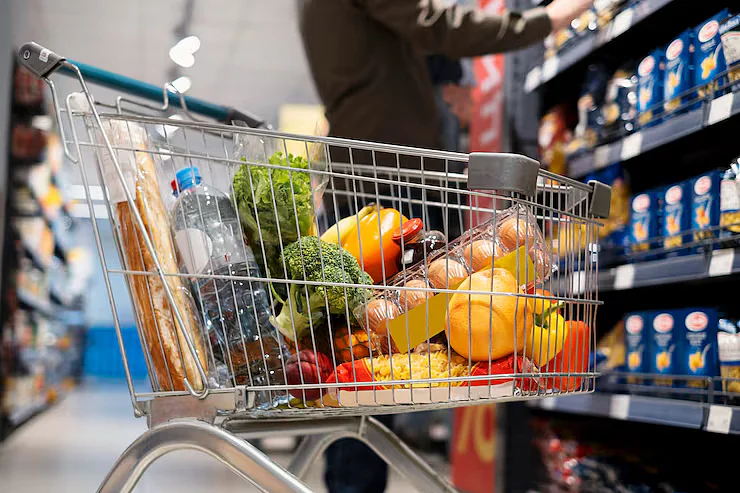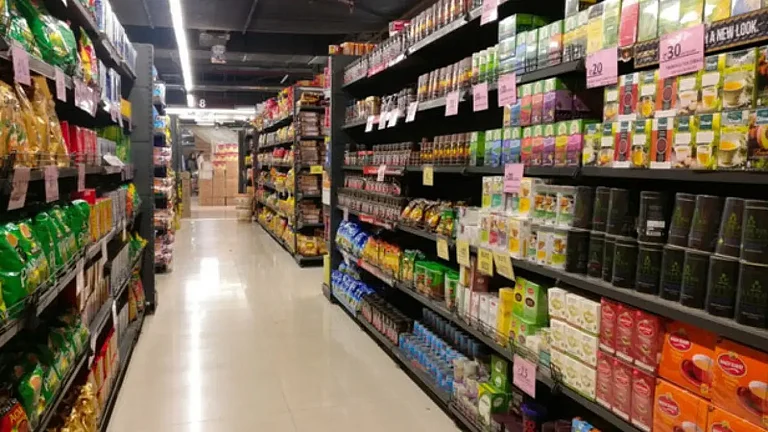
GST rate cut on personal items and daily essentials from September 22 expected to revive domestic consumption, boost economic momentum and support long-term FMCG growth
FMCG firms likely to pass on benefits through reduced prices or higher grammage, with analysts expecting 8-10% price drop and 2-3% industry growth
Marico MD & CEO Saugata Gupta called the reform "game changing" and a catalyst for consumption-led, inclusive growth
The cut on GST rates on commonly used personal items and daily essential products in the run-up to the festival season will play a key role in domestic consumption revival, while stimulating economic momentum and building long-term growth in the FMCG sector, industry players said on Thursday.
Terming the decision of the GST Council, headed by Finance Minister Nirmala Sitharaman, to limit slabs to 5% on consumer food products, effective from September 22, as "game changing", FMCG sector players said it will act as a catalyst for inclusive economic growth.
FMCG companies are looking forward to passing on the benefits of the GST rate cut to consumers by either increasing the grammage or reducing the prices of stock keeping units (SKUs), with industry analysts expecting price drop of 8-10%, depending on brands, while contributing to 2-3% growth in the FMCG industry.
Marico MD & CEO Saugata Gupta said the GST rate cut is "game changing" and by making essential consumer products more affordable, especially in the run-up to the festival season, these reforms will play a pivotal role in stimulating economic momentum and building long-term growth in the FMCG sector.
"We believe this will further empower households, foster consumption-led growth, and act as a catalyst for inclusive economic growth," he said.
Similarly, Dabur CEO Mohit Malhotra said the GST cut is a "timely and transformative move" and a growth enabler for the FMCG sector.
"This reform not only makes everyday essentials like shampoos, soaps, and toothpastes more affordable for millions of households, but also signals a strong commitment to inclusive growth and domestic consumption revival. I believe this initiative will act as a powerful catalyst for demand, especially in rural and semi-urban markets," he said.
Godrej Consumer Products Ltd (GCPL) Chief Financial Officer Aasif Malbari said, "We welcome the government's initiative of lowering taxes to boost consumption. The move will ultimately contribute to overall economic momentum. We are fully committed to ensuring that the GST rates reduction benefits are passed on to consumers." Welcoming the reduction in GST rates on FMCG items, distributors' association AICPDF said "this is not just a technical tax adjustment -- it is a landmark step" that will boost consumption, ease pressures on trade, and strengthen the supply chain from manufacturers to the last-mile retailer of the industry, which is valued at ₹6.5 lakh crore.
This will generate an estimated 8-10% growth in rural consumption over the next two quarters, said All India Consumer Products Distributors' Federation (AICPDF).
It will also help improve distributor and retailer liquidity by an estimated ₹4,000 to ₹5,000 crore across the network due to reduced working capital blockages.
"Adding momentum to India's FMCG sector, which is projected to grow at 10-12% annually, with this GST reform potentially accelerating it by another 2-3 percentage points," it said.
Sunil Agarwal, Co-founder and Chairman of Joy Personal Care (RSH Global), said the tax relief makes everyday essentials more affordable, while also encouraging higher consumption.
"Rural India has been driving FMCG growth for six consecutive quarters, and this move will further strengthen demand in these price-sensitive markets, even as urban consumption continues to recover," he said.
The sector has already recorded 13.9% value growth, supported by rural demand, urban revival, and the rapid rise of e-commerce, particularly in southern metros.
According to Grant Thornton Bharat Partner and Consumer Industry Leader Naveen Malpani, GST rate reductions have made a wide range of daily essentials more affordable, "which could lead to price drops of 8-10% depending on brand and supply chain efficiencies".
Companies are expected to either increase grammage of sachets and popular price packs, besides reducing the rates of medium and large packs, making them more attractive, said industry executives.
The companies are also ready to implement the new prices on FMCG items, which are lying at warehouses currently, although they have no clarity on pricing over products that have a longer lifespan and have been with retailers for a longer period.
In recent weeks, FMCG demand had softened as consumers waited for clarity on GST rationalisation. With the new rates now in effect, retailers are expecting a strong rebound in festival sales.
































